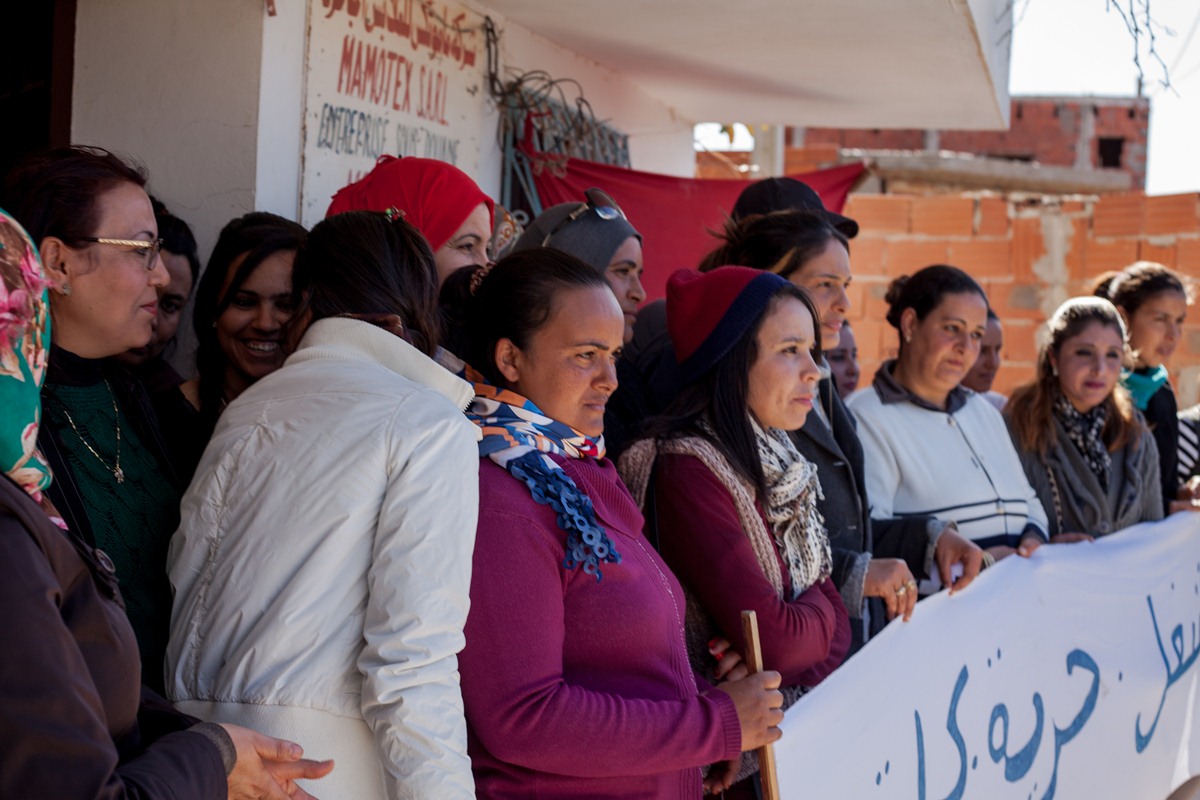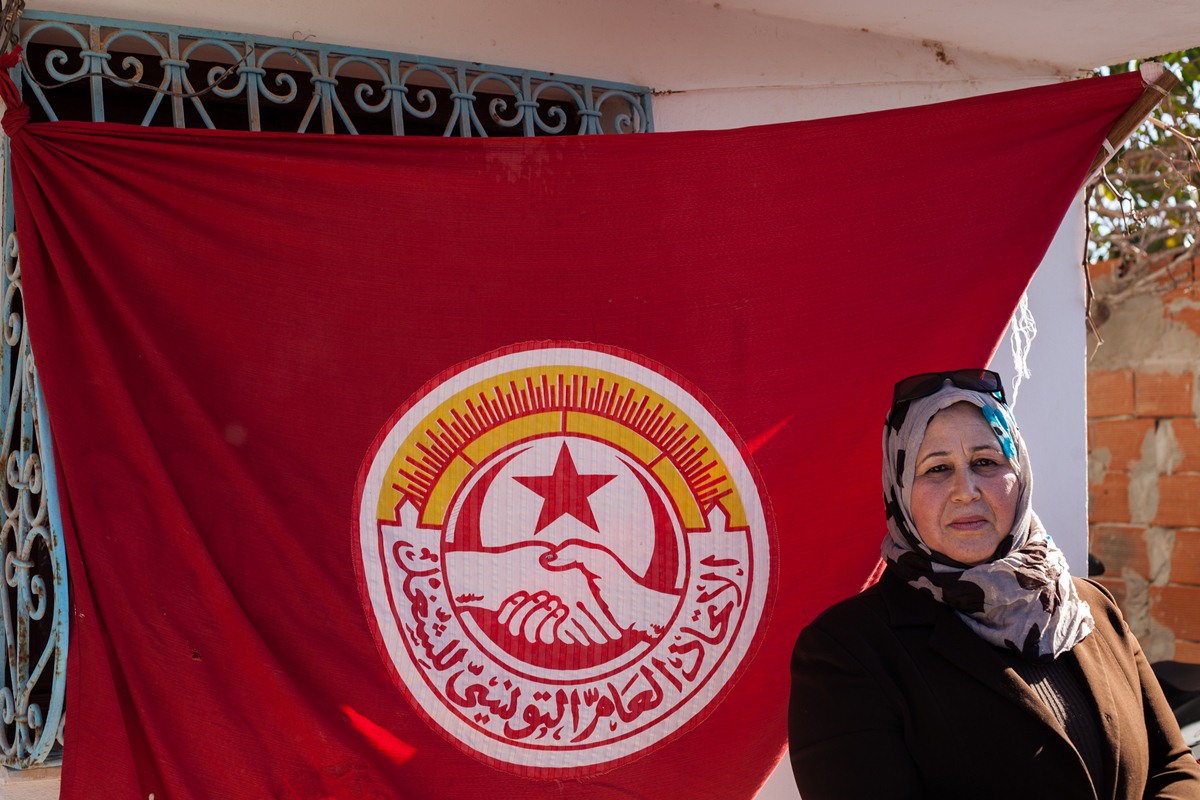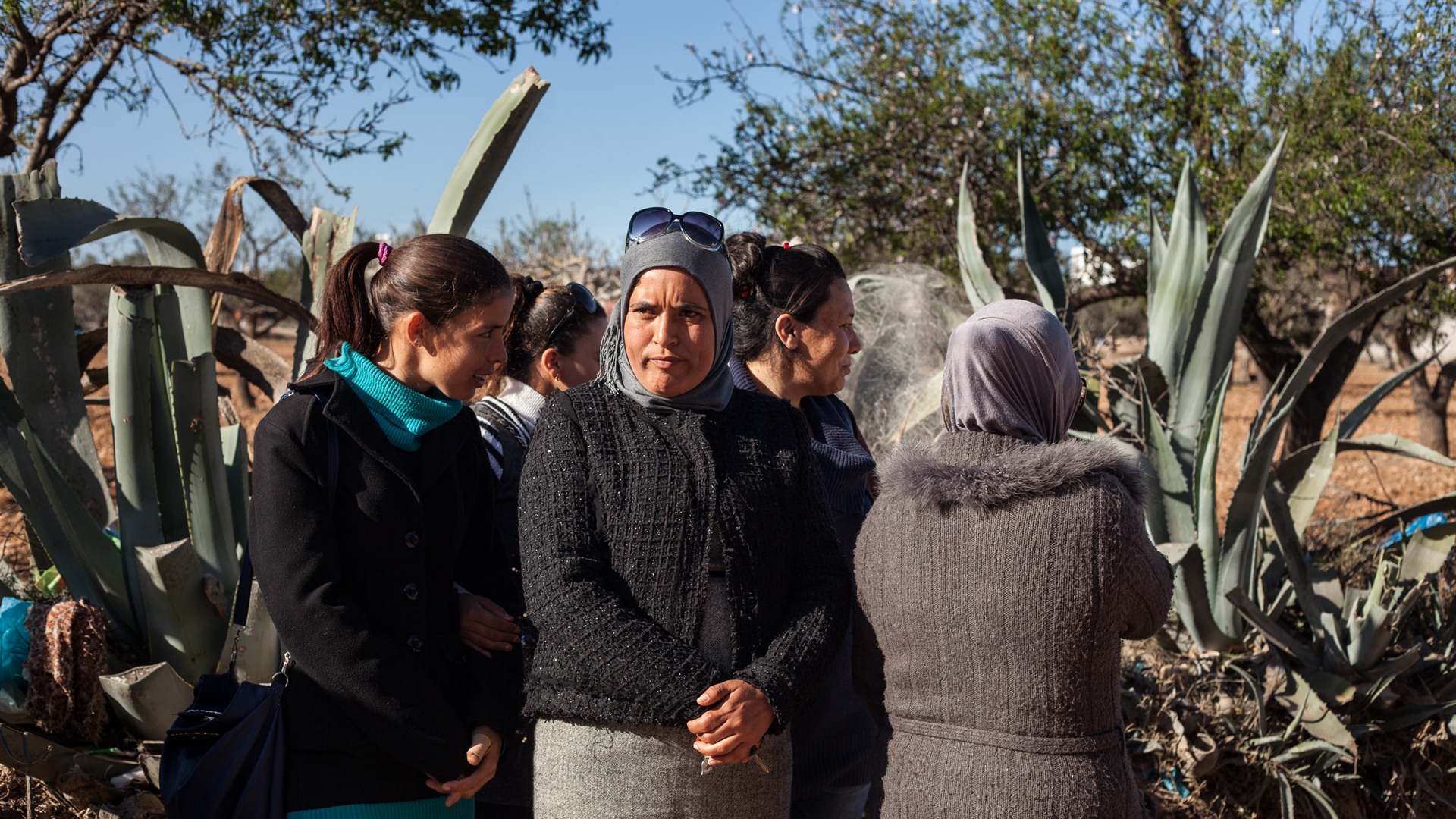After twenty years of activity, the owner of Mamotex decided to close the company down, taking away the jobs of workers he hadn’t paid since the beginning of the year. However, through this shared misfortune, the workers mobilized and learned how to fight back, obtaining the right to self-manage the company in March 2016; a first in Tunisia.
Years of humilation

"We've been pressured and terrorized for 20 years," says Leila Dayyek, who has been working in the factory since its establishment. She's endured precarious working conditions and almost daily humiliation.
"For the slightest fault, they would come to see us and tell us to stand by the door against the wall," says a mother of three children, who is now a student. "They would watch us, and as soon as we started chatting, they'd start shouting. They might even throw the products in her face.’’
After years of experience, Leila became "head of export control." "Even so, they sometimes shouted at me for being old," she says.

Sometimes they would lock us in the factory"
In addition to physical and verbal abuse, there were long periods of insecurity and instability. "Everything was undervalued: bonuses, wages, overtime, the worker’s tenure." Workers sometimes had to wait several months for their wages and their social security (CNSS) was only paid "50 percent of the time"
Houda Charfeddine also recounts years of struggle. "Sometimes they would lock us in the factory on Saturday afternoons so that we would finish an order. They would not let us out. And of course, they didn't pay us overtime." "He used the same methods Ben Ali used," Leila adds.
tHE STRUGGLE FOR DIGNITY
At the end of 2013, the workers decided to mobilize against their bosses by creating their own union affiliated to the UGTT. "Since then, our working conditions have clearly improved but above all else we have regained our dignity. Dignity is the most important thing. Dignity over money," says Leila.
Their employer tried to dissuade them by putting pressure on certain individuals, sometimes through their fathers or brothers. However, as a group, the workers stood strong. Initially, there were only a handful who dared to engage in union activity, but "little by little," the more skeptical workers eventually grew convinced that forming a union could improve their working conditions. "Now no one yells at us anymore. As soon as someone does, we stop working."
Leila considers herself lucky to have grown up in a family of trade unionists. For others, the union activity at the factory was their first experience of labor rights.
"It wasn't until we unionized that we figured out how it worked."
Since forming the union, the workers at the plant finally have some room to breathe. Their salaries have been paid (despite some delays) and several of them have been made permanent staff. If the company’s budget overruns at least they know where they stand. "Before, we didn't even know how to check the CNSS payment. It was only because of the union that we understood how those things work," Houda admits.
"Now, we talk to each other about our salaries and working conditions. We're making our voices heard and demanding what we're owed. Personally, I've learned a lot of things. One is that I have to fight for my rights," she says.

Where are the men?
As this unprecedented development has occurred in the female-dominated textile sector, men are relegated to the backdrop. Leila and Houda are married and with children, but this is not the case for the 24-year-old Imen Fartoul.
"Finding a husband is not a problem. My problem today is work." From this movement, Imen has "learned to be vocal about (her) rights.’’ This young woman, who decided to leave school early and support herself, never imagined she would be involved in union activity and never considered that employees could manage their own business. "My priority is to defend my work and my company, so that business can be resumed."

With a husband who is a trade unionist, Leila feels that her partner has been a positive influence. "I used to come home crying and my husband would criticize me. He'd tell me we'd better start our own union instead of complaining. He encouraged me to do that," she says. "Women here are much more free than before and now they are supported by men. But that hasn't always been the case. When we started the union, some girls were discouraged to join by their fathers, husbands, or brothers. They would tell them, 'Forget it, it's no use.' But now they've realized that it's worthwhile," insists Leila, pointing to a man at the entrance to the factory who has come to support his wife.
Only the hall manager works with the women on a daily basis. "Before he used to shout and humiliate us, now he's with us, it's in his interest," explains Leila.

Mamotex is a subcontracting factory specializing in the manufacture of products that are exported to major clothing brands, mostly in Europe.
The textile industry in Tunisia employs more than 179,000 people (according to a report by the Agency for the Promotion of Industry and Innovation in 2014).
Despite the sector’s importance to the Tunisian economy, it is experiencing a structural crisis with the closure of 300 companies and the loss of 40,000 jobs, according to statistics from the National Textile Federation (Fenatex), part of UTICA.
In a study undertaken in 2013, the Tunisian Social Forum for Economic and Social Rights (FTDES) highlighted a number of issues concerning the rights of workers in the textile industry in Monastir. These included precarious working conditions, provision of low wages, employees being overworked, and the occasional lack of social security coverage. The FTDES particularly pointed the finger at the company managers (directly responsible for exploitative contracts, undervaluation of working hours, non-payment of overtime, etc.) and the complicity of the State. The study also showed the low rate of unionized female workers, amounting to 10% of those who took part in the survey.
When the owner, Mounir Driss, said he was unable to pay the salaries of his employees and expressed his desire to close the factory, several meetings were held at the Mahdia governorate headquarters. Negotiations were held with representatives from the State, the trade union, and the CNSS, resulting in an agreement which allowed the workers to continue operating the factory without the managers.
"The secretary will manage the accounts with the union members. The manager didn't do anything anyway. We just want to get our wages and the money he owes us, if there is anything left," says Leila. "We're willing to work hard and sacrifice time as long as we save our company and keep our jobs," concludes Houda.




